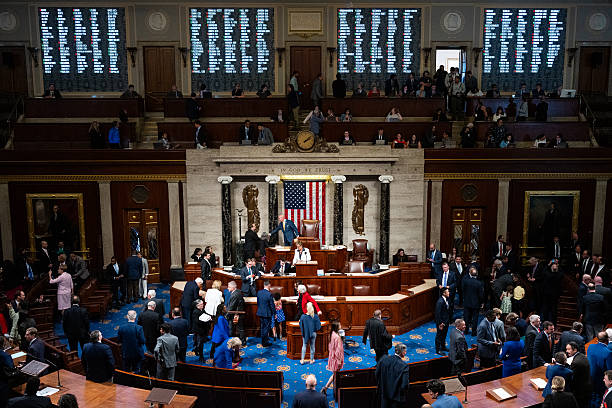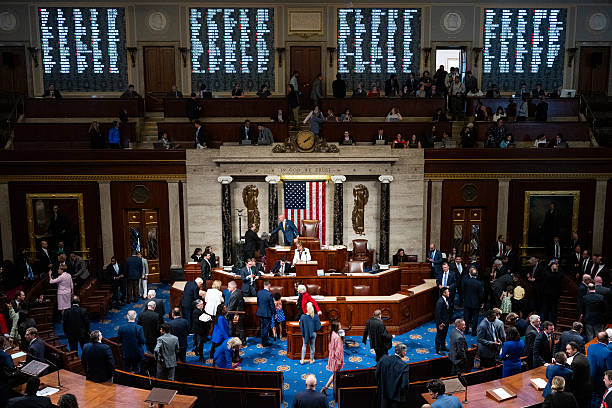By: Sahra Mohamed
As the United States celebrates Independence Day on July 4th, 2025, many are wondering how “independent” the country is. While Americans gather for fireworks and parades, Congress has passed a new law known as the “One Big Beautiful Bill” a massive piece of legislation that could change life for millions. President Donald Trump’s bill was approved by a close vote: 51–50 in the Senate, with Vice President J.D. Vance casting the tie-breaking vote, and 218–214 in the House. Critics warn the bill gives too much power to immigration authorities, makes it harder for low-income families to access healthcare and food assistance, and provides tax breaks that mostly benefit the wealthy. It also eliminates climate initiatives and increases the national debt. The question many are asking is: who benefits from this bill and who will pay the price? Trump’s bill makes tax cuts permanent, largely benefiting the wealthiest Americans and major corporations. According to The Economist, over 40% of the tax benefits will go to the top 1% of earners, while many low-income families could actually lose money due to rising living costs and cuts to programs they rely on. The bill also eliminates federal tax credits for electric vehicles and green energy, a decision that CBS reports will increase household energy costs.
Another major concern is the expansion of immigration enforcement. The bill gives over $100 billion to ICE (Immigration and Customs Enforcement), more than 10 times its current budget. That money will be used to hire 10,000 new ICE agents, build new detention centers, and increase surveillance like facial recognition. ICE will now also be allowed to work with local police without asking state governments for permission. Civil rights groups like the ACLU say this creates a dangerous system where immigrants could be targeted, even if they haven’t committed any crimes. The bill makes significant cuts to public assistance programs as well. It adds strict work requirements for people who use Medicaid, which could cause as many as 17 million Americans to lose health insurance, according to the Congressional Budget Office. It cuts food assistance (SNAP) and makes states responsible for running those programs, which could lead to confusion and delays. Single parents, disabled people, and low-income families will be the most affected. Even some Republicans are worried about the bill. According to ABC, Susan Collins voted against it, saying the healthcare cuts go too far. Others, like Senator Rand Paul, criticized the bill for increasing the national debt by about $4.7 trillion over the next 10 years. Credit rating agencies such as Moody’s have warned that the rising U.S. debt could continue to harm the economy.
Still, the bill passed through a process called budget reconciliation, which allowed Republicans to avoid a filibuster and push it through with just a simple majority. Many economists and policy analysts warn that the bill will worsen inequality while doing little to support economic growth. According to the Brookings Institution, permanent tax cuts for high earners have historically failed to deliver more jobs and wage increases for average Americans. Instead, similar past policies like the 2017 tax law, led to record stock buybacks and made the wealth gap worse. At the same time, cutting funding for green energy hurts jobs and stops new businesses from growing. The U.S. Department of Energy reported in early 2025 that more than 400,000 clean energy jobs could be lost if federal support is withdrawn. By taking money away from these industries, the bill could slow down new ideas and make it harder for America to compete in the world energy market. The Bill’s strict immigration rules will also cause serious financial and social problems.
A report from the American Immigration Council finds that a one-time mass deportation campaign targeting 13 million undocumented immigrants would cost at least $315 billion, while removing 1 million people per year would cost around $88 billion annually, bringing total expenses close to $968 billion over a decade. Deporting the entire undocumented population could cost between $100 billion and $300 billion just for the deportation process, with an additional $315 billion required for continued enforcement actions. Reuters reports that immigration raids have already left crops unharvested on California farms, and agricultural leaders say that removing undocumented workers could cripple farms that are already struggling with seasonal labor shortages. Public opinion shows uncertainty about the bill’s impact on American values and freedoms. According to a recent Quinnipiac poll, only 28% of Americans support the bill, while 47% oppose it and 25% remain unsure. This July 4th, as Americans wave flags and celebrate the nation’s birthright of freedom, many are also waking up to a new reality, one in which personal liberty depends on socioeconomic status, immigration status, and political alignment. Independence without equity, and security without justice, is not freedom at all.











